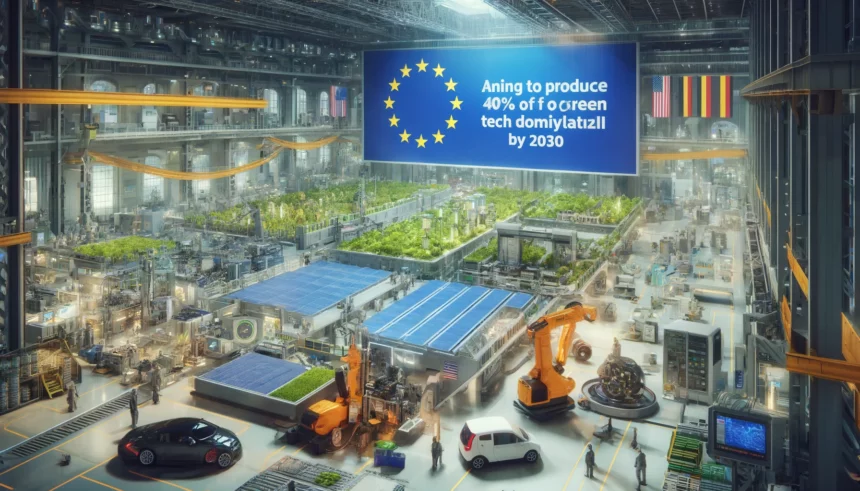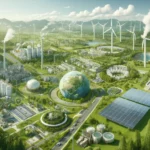Overview
On Monday, the European Union governments officially approved a new law aimed at increasing the production of green technology within the bloc. The Net Zero Industry Act (NZIA) sets a goal for the EU to manufacture 40% of its solar panels, wind turbines, heat pumps, and other clean tech equipment domestically. This law is a crucial step in helping European industry compete with major players like the U.S. and China.
Key Highlights
- Objective: To produce 40% of the EU’s green technology domestically by 2030.
- Implementation: The law will take effect next month or early July after being signed by the presidents of the European Parliament and the Council and published in the EU’s official journal.
- Focus Areas: Solar panels, wind turbines, heat pumps, electrolysers, carbon capture technologies, and more.
Why It Matters
The EU is determined to lead not just in reducing greenhouse gas emissions but also in manufacturing the necessary technology. Here’s why this is important:
- Reducing Dependency: Currently, Europe relies heavily on China, which is expected to control 80% of global solar manufacturing capacity. The new law aims to reduce this dependency.
- Competing Globally: With the U.S. Inflation Reduction Act offering $369 billion in green subsidies, there’s a risk of European producers moving overseas. The NZIA helps keep production within Europe.
Goals and Targets
- 2030 Target: Produce 40% of the needed green tech domestically.
- 2040 Target: Capture 15% of global production of these technologies.
Streamlining Processes
To achieve these ambitious targets, the NZIA includes measures to streamline the permitting process for projects that increase EU manufacturing:
- Permit Issuance: Most permits will be issued within six to nine months.
- Public Procurement: Public authorities must consider sustainability and resilience (30% weighting) when buying clean tech products, not just price.
Challenges Ahead
Meeting these goals won’t be easy. Here are some challenges the EU faces:
- Solar Panel Production: EU manufacturers currently supply less than 3% of the panels used in the EU, struggling to compete with cheaper imports.
- Wind Energy Sector: While stronger than solar, the EU’s wind sector faces increasing competition from Chinese companies.
What’s Next?
The NZIA’s approval marks a significant milestone in the EU’s green tech journey. As the law takes effect, the focus will shift to implementation and overcoming the challenges to ensure Europe remains at the forefront of green technology production.
















